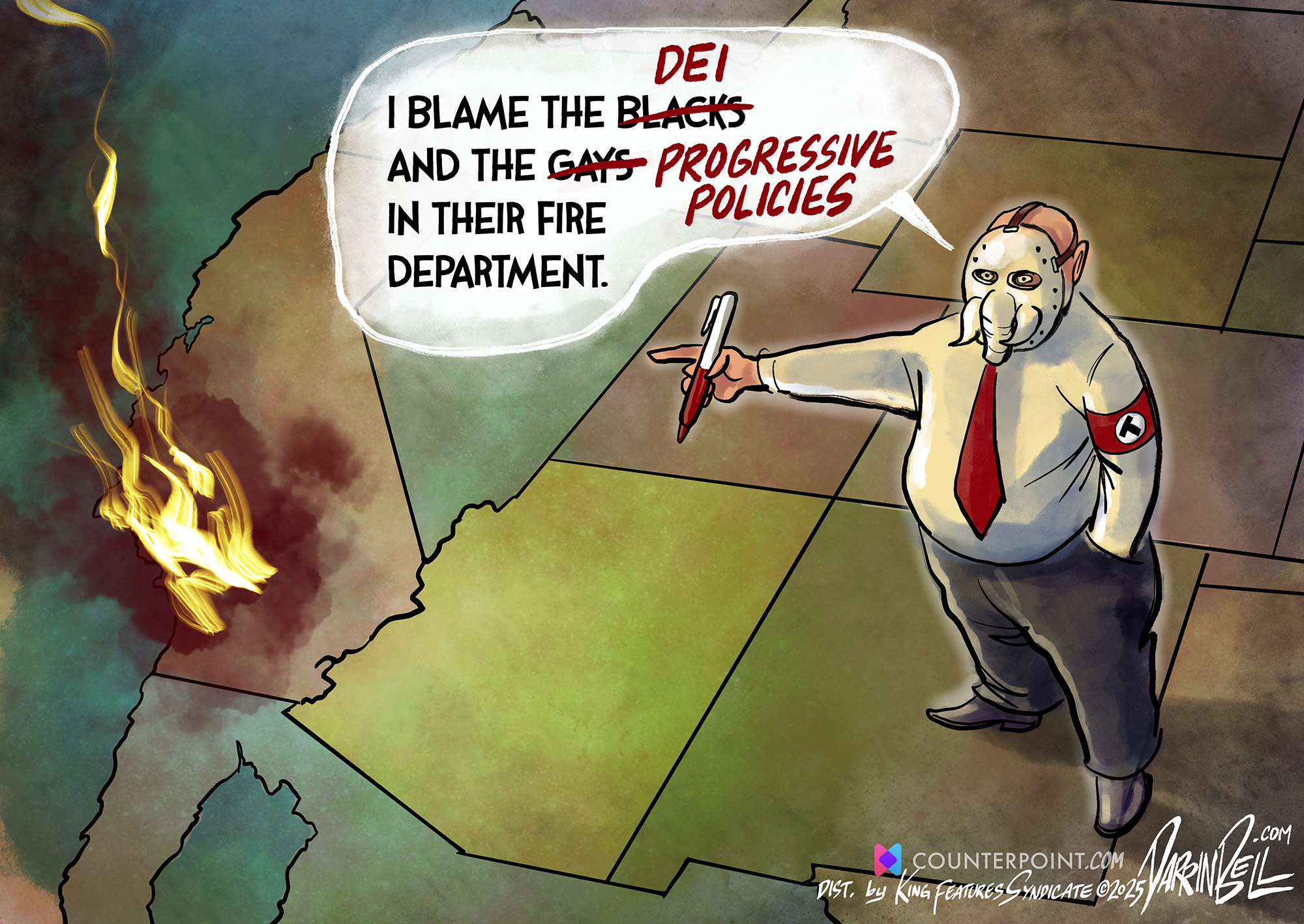
Euphemistically-speaking
The only shocking part about this is that the white supremacists Neo NAZIS Alt RightMAGA fascists bigots extremists Republicans are still dabbling in dog-whistles. Convict Trump put in four years of hard work to inspire the worst impulses in his followers.
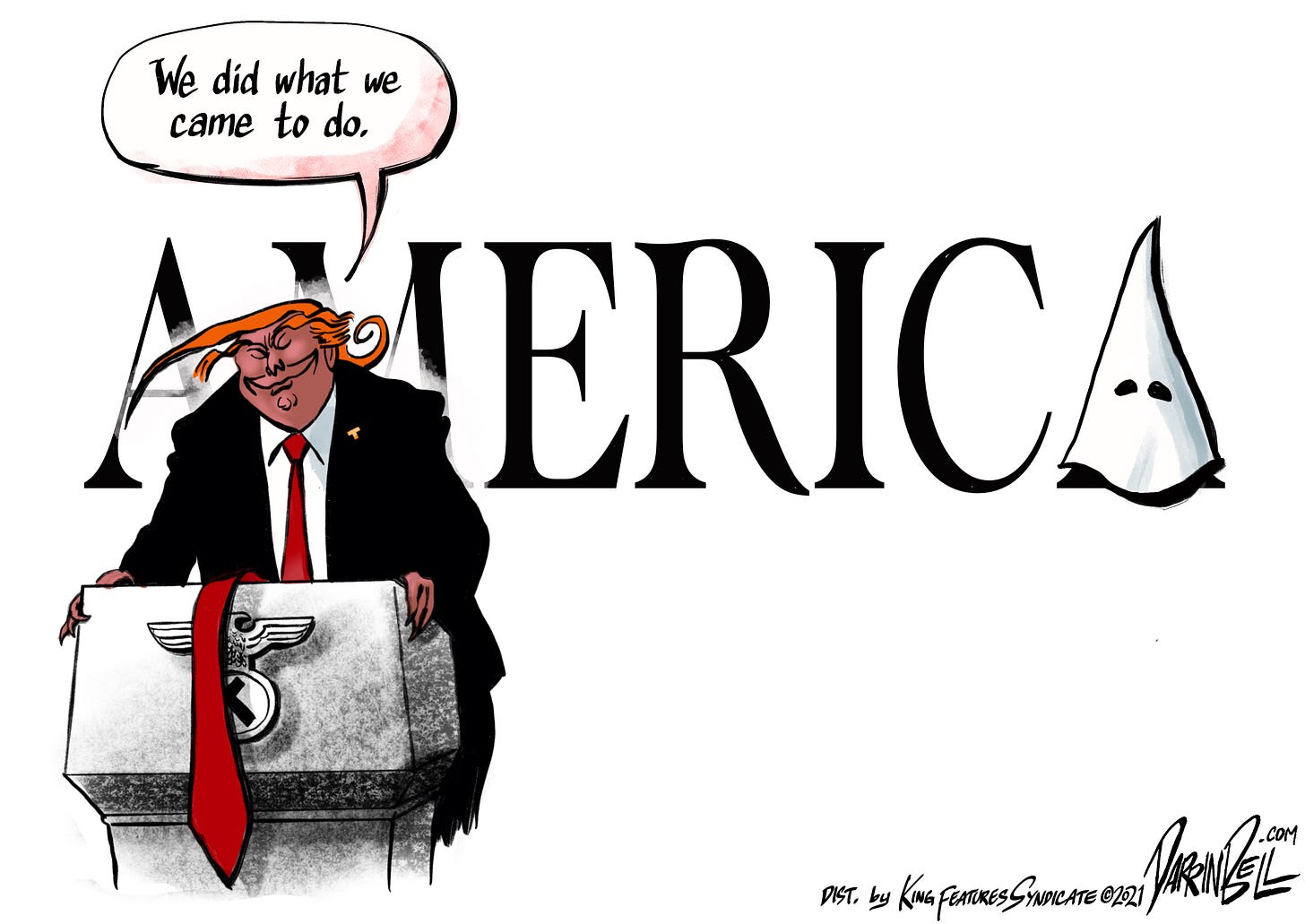
Why the euphemisms, then? Why don’t they just come right out and admit that their goal is to delete “The Blacks,” “The Gays,” “The Mexicans,” and anyone else they deem to be undesirable, from any influential positions of prominence?
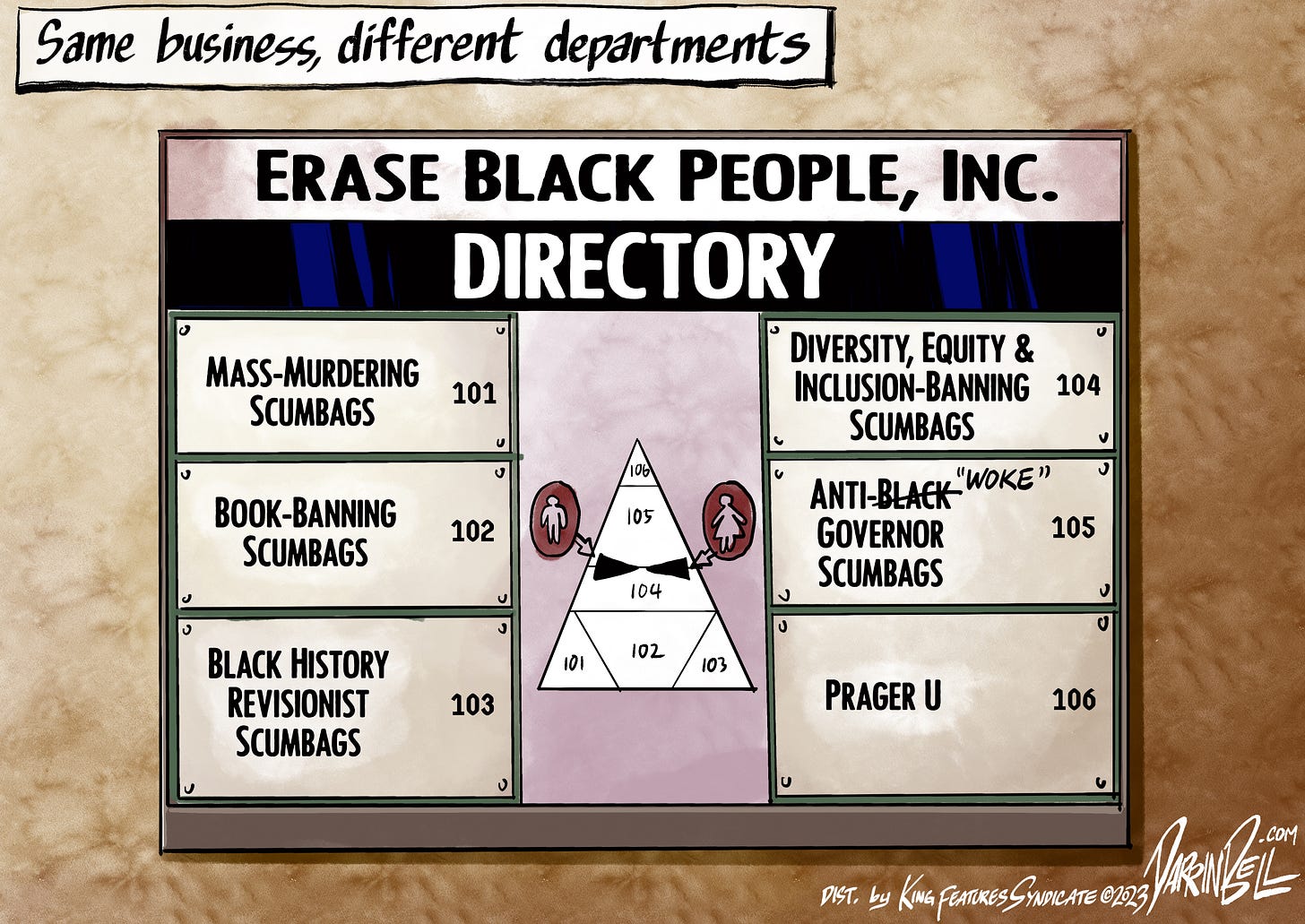
The basest motivation
You might not know that Candorville wasn’t my first syndicated comic strip. I started it in 1995 for my college newspaper, and self-syndicated it to Black newspapers and a zine called Continental Newstime throughout the Nineties. But The Washington Post Writers Group didn’t launch it in mainstream papers until 2003. In the meantime, I was working on something else.
In 1997, I co-created the comic strip Rudy Park, with New York Times reporter Matt Richtel. We’d meet once a week at San Francisco’s Metreon where we’d eat lunch, people watch, and joke about Bush, Rumsfeld, Paris Hilton, and whatever else was in the news. Then he’d go home and write a week’s worth of Rudy strips, I’d edit them, and then draw them. After he won a Pulitzer and wrote a few best-selling novels, he wisely freed up some time to spend with his small kids. He handed the writing duties to me.
The hardest character to crack, for me, was Armstrong Maynard, the conniving boss. They were all hard, actually, until I decided to zero in on one character trait that I always enjoyed in Matt’s writing. For Armstrong, I decided that the reason why he was always screwing over patrons and his employees wasn’t because he was greedy. It was because he was a sadist. A shameless, amoral, gleefully malevolent soul, for whom the cruelty was the point

Ever since Reagan ran against a fictional “welfare queen” in the disco era, conventional wisdom has told us that Republicans dog-whistle to convince deplorable bigots that they’re with them. And at the same time, they’ve got plausible deniability.
I believe conventional wisdom has missed the point for half a century.
Darrin Bell’s Disobey in Advance is a reader-supported publication. To receive new posts and support my work, consider becoming a free or paid subscriber.
Republicans do want bigots, xenophobes, and other assorted scumbags to know that they’re with them. But they don’t want plausible deniability. They want to rub it in our faces, to bait us into pointing it out. Because then they get to play another game: they get to gaslight us. It’s not desperation on their part. It’s not trickery. It’s sadism.
Fascism succeeds when people are trained to ignore their own eyes and to instead see what they’re told to see.
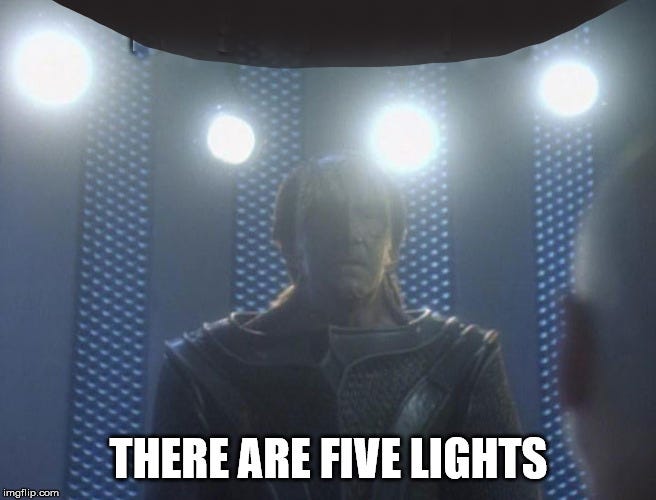
There are five lights. We have always been at war with Eastasia. Donald Trump fought to save Obamacare. Donald Trump didn’t shut down the government during his first term.
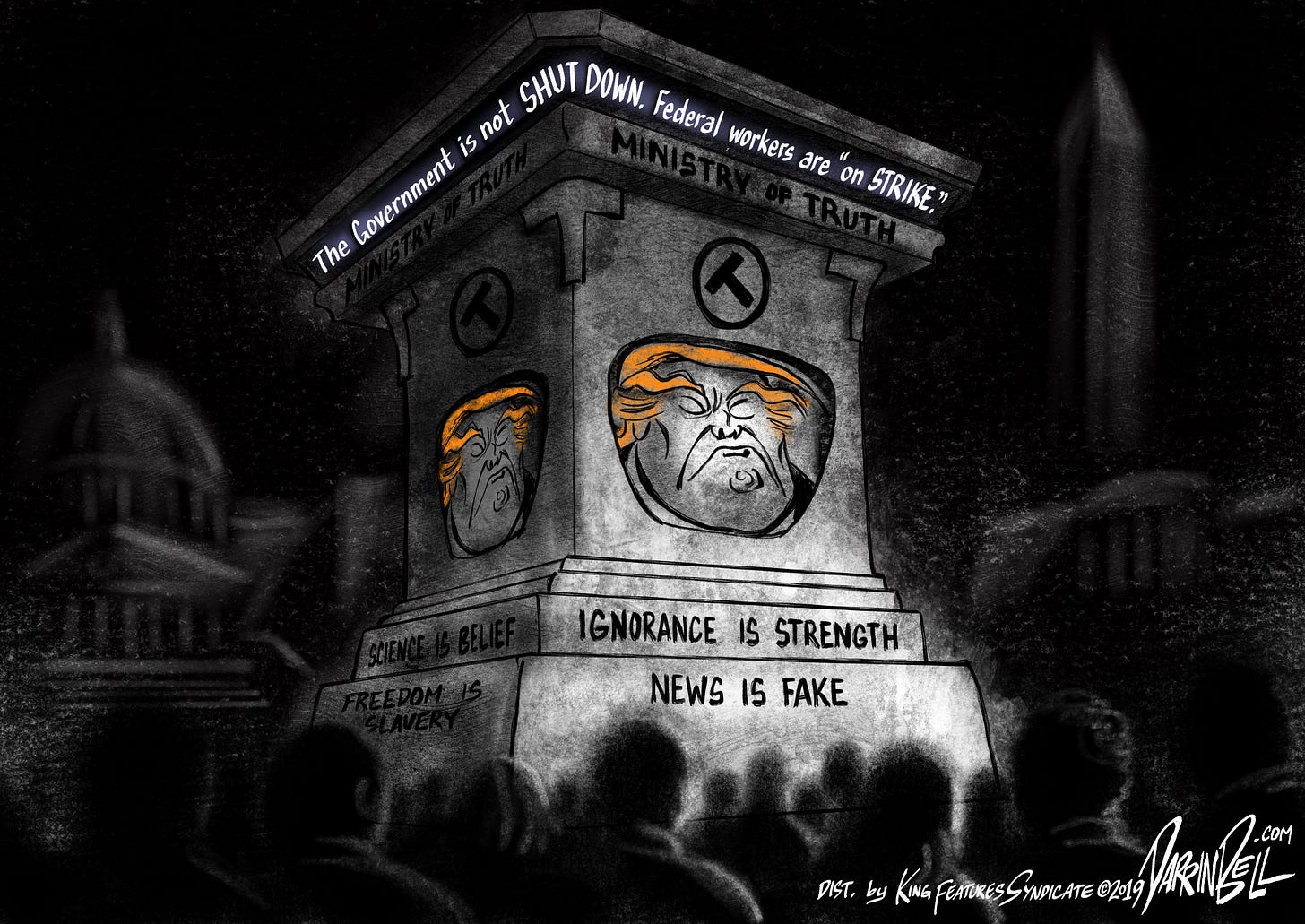
It’s the Democrats that are racist, not the Republicans. In fact, Dr. Martin Luther King, Jr. would vote Republican today if a racist Democrat hadn’t executed him.
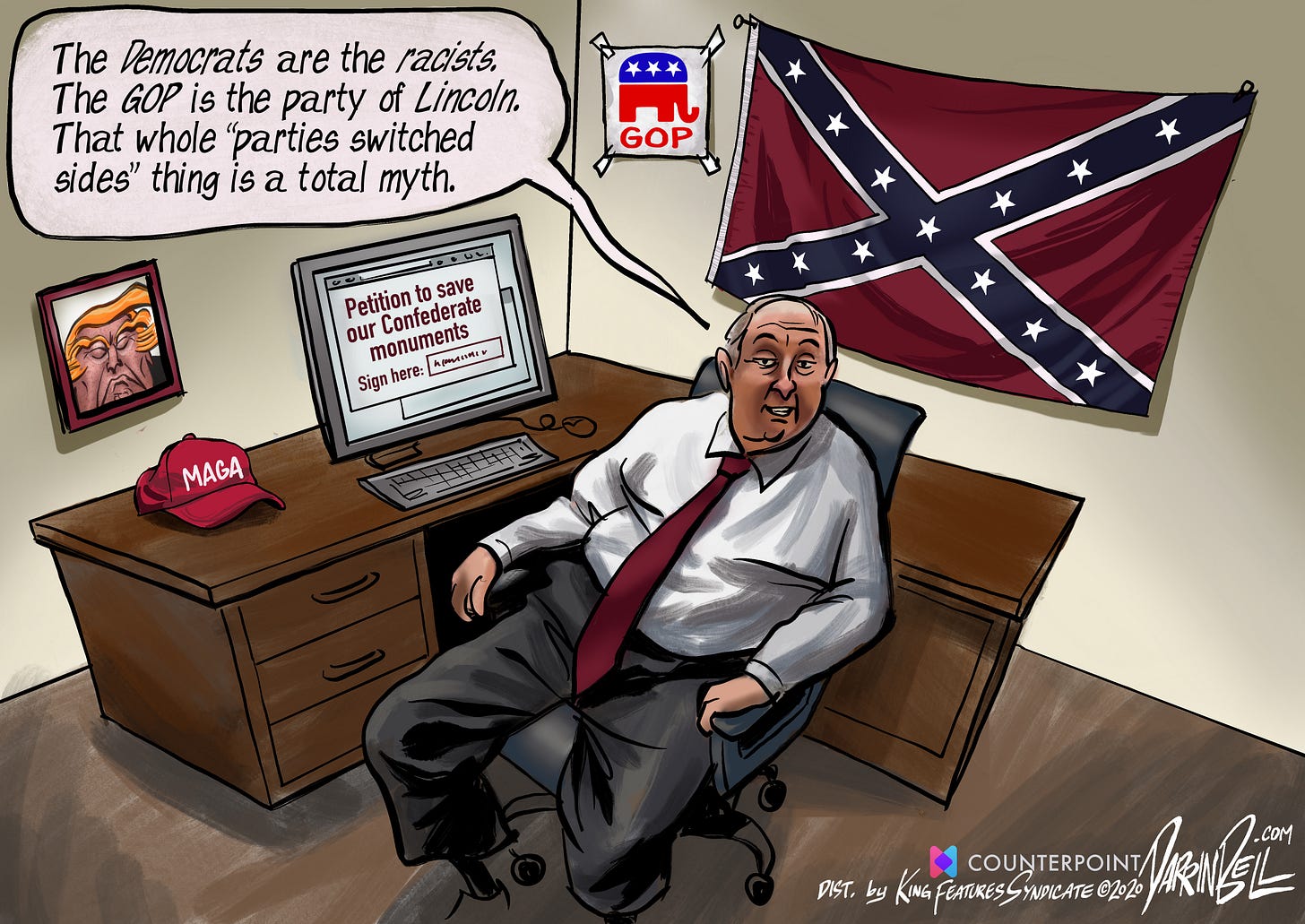
Their glee is incomprehensible
Gleeful sadism is one of the most effective aspects of a fascist movement. It’s beyond gaslighting. It’s a type of gaslighting where the cretin wants to make sure you know they’re doing it, because it produces cognitive dissonance in decent people. Cognitive dissonance is a psychological state of distress produced by holding two opposing thoughts at once. Decent people tend to believe that people who lie to them are decent, if misguided or misinformed. It’s hard for decent people to accept the plain truth that there’s no shortage of politicians, Media figures, neighbors, family, friends, or colleagues, who are gleefully and knowingly being disingenuous – or worse – lying to their faces.

When faced with cognitive dissonance, one common reaction is to simply give up. To stop trying to correct misinformation. To stop pointing out wrongdoing. To stop organizing. To stop resisting. To wall oneself off from what’s happening and focus on self care. Maybe take up knitting, or watercolors, to pass the time until the national fever breaks.
The first, and maybe most important way to counter it is, to simply assert to whomever is doing it, that you know it’s happening, that you know that it’s intentional, and that it will never work on you.
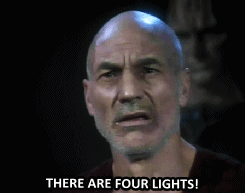













Only Patrons signed up for at least the $1 level can comment.